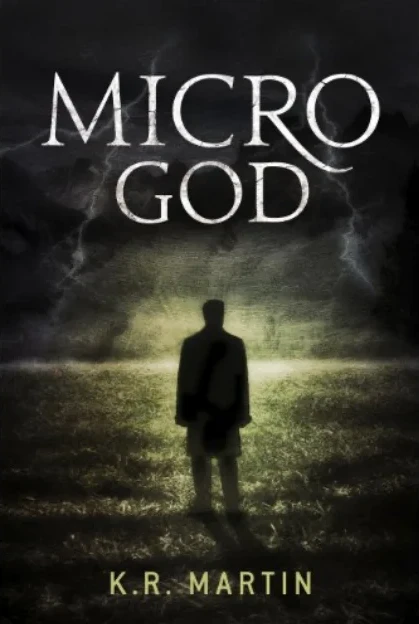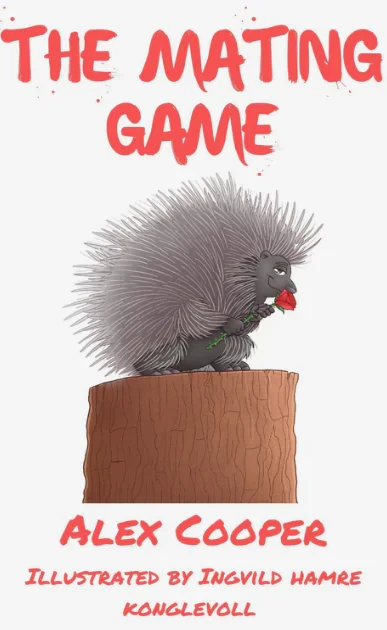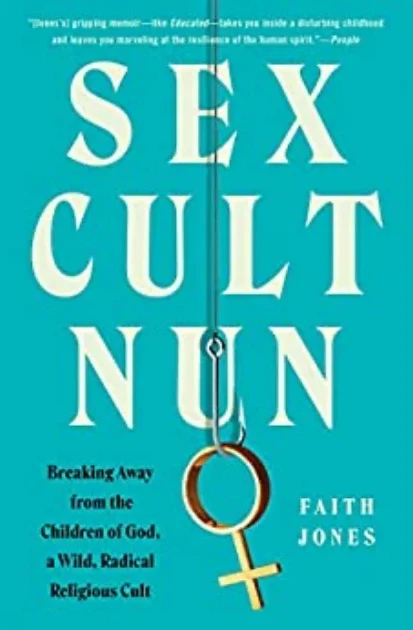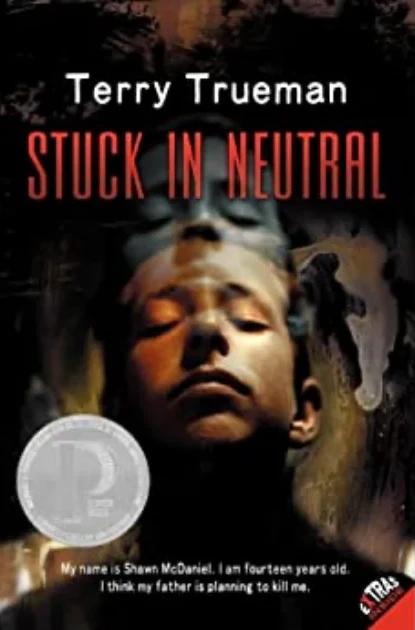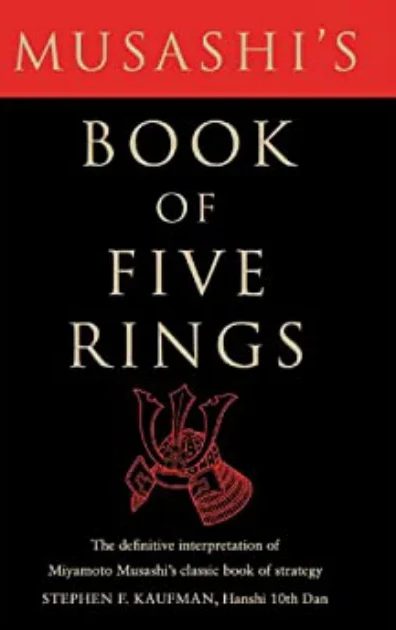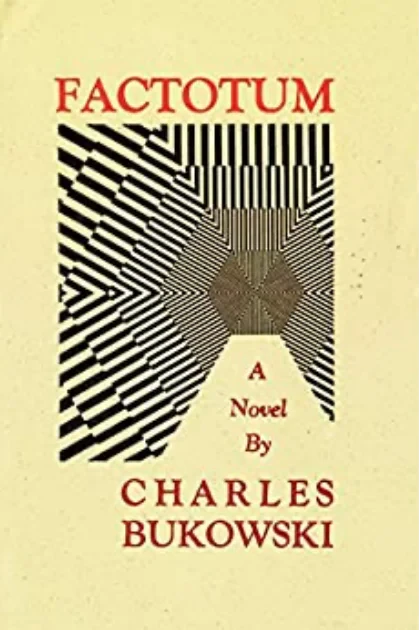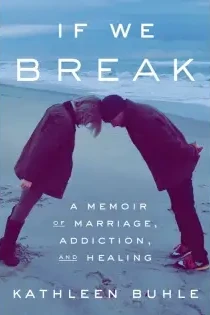
There are moments reading If We Break when Kathleen Buhle irks with such passion you may want to reach into the pages, shake her by the shoulders, and scream, “Would you please wake up and do something about your husband!” There are moments you will roll your eyes and sigh at the grotesque privilege the novel effuses. There are moments you will grit teeth, expecting her to spiral deep into Al Anon's Twelve Step pseudo-religion too asinine to be called “junk science.” Those moments, strung together by brutal honesty, nuance her journey with meaning through the intersection of patriarchy, Christianity, and privilege.
The book’s wisdom forms in Buhle declaring none. Her ability to step back and narrate with little judgment for herself and others unfolds events, not always flattering, making the reader judge. She never teaches or tries to convince, presenting only her uncolored emotional internalizations. When her husband cheats on her, she doesn’t attack his character, instead carrying us through her hurt and perception of events.
Why wasn’t I screaming and raising my fists? I stood there under a clear blue sky, before the great expanse of Lake Michigan, and felt only a deep sadness. I didn’t want my life to change, but it kept getting distorted, pushed further and further from what it had once been, and I couldn’t see how I was ever going to get it back.
Transcribing scenes this way reveals her profound writing skill, helping to separate the name "Biden" from her, focusing attention on her story. To be clear, If We Break is not he-said-she-said or a salacious political tell-all, and anyone seeking these qualities finds disappointment. Truly a memoir, this novel provides readers insights into a woman’s experience.
Christianity & Patriarchy
“After sixteen years of Catholic school, albeit without much of the religion sticking, I took the court date as a good sign, the beginning of a rebirth,” says Buhle in chapter thirty-seven's opening. Until this point, the reader knows Buhle as a slightly naïve Catholic girl from a southside-Chicago, working-class neighborhood who meets and marries a senator’s son while working for an environmental group as part of the Jesuit Volunteer Corps during college. Now, a slightly calloused version of that girl stands in a courtroom to obtain a divorce, finished with her husband’s secret life of affairs, reckless spending, and inattentiveness. Independence manifested in Buhle during her marriage’s last few years, often not by her choice, which contradicts her declaration of the religion not "sticking." The Catholic working-class upbringing that made Buhle an unpretentious young woman also made her naïve and susceptible to having her independence stolen, regardless of her perceived religious indifference.
Buhle presents a rare look inside the mind of many Christian wives similarly trapped by patriarchal religion. Despite not wanting the housewife role, she finds herself a mother of three before the age of thirty with no career. Worse than lacking a profession, she becomes lost in a marriage that places her husband as the breadwinner and decision maker. Every aspect of Buhle’s life orbits her husband, seen readily when the family ends up living where she doesn’t want to reside on the east coast and with him holding sole discretion over finances. The situation is not forced but evolves rapidly in the first years of marriage, not just because he earns all the money but for being the most financially sensible way to ensure family stability. Readers see this loss of autonomy but do not sense the depth until the husband returns from alcohol rehab the first time.
…he sat me down and told me we owed a significant amount of money in taxes. He said he wasn’t worried, and neither should I be. By this point in our marriage, I knew almost nothing about our finances. As our family grew and our expenses increased, I had dug my head further into the sand. I liked simply asking Hunter for money rather than discussing where it was coming from. So I took the tax news without question.
Some women would have left their husbands the first time he went to drug and alcohol rehab, but Buhle supports her husband’s recovery for multiple stays that do nothing to stop his descent into drug use and affairs with prostitutes. He does what he wants, and she continues trying to work the marriage as he hardly bothers to hide his predilections. This intelligent woman becomes a pathetic, nearly neurotic basket case bent on making her husband sober to salvage their marriage: dialing doctors, lying to everyone around her, and investigating her husband’s coming and goings. Witnessing Buhle unravel clarifies the often disguised, denied-to-exist, systemic female oppression of patriarchy reinforced by Christianity that indoctrinates women with roles that make them dependent on men.
The Curse of Privilege
Depending on the reader, Buhle comes across at times as the epitome of white woman privilege. Exemplifying this idea, Buhle, at one point, suffers her husband’s neglect, alcoholism, and philandering to the point of a mental breakdown.
I sat at the glass dining table at the lake, chatting with my cousins and nervously looking at my watch: only two more hours now until Hunter would be sitting with the doctor. Just then Maisy came up from the beach holding her shattered iPhone. The screen wouldn’t turn on. She was crying, and I knew her tears were about a lot more than the cellphone. She called a store forty-five minutes away that said they could fix it that same day. Would I drive to the town of Valparaiso with her broken phone? I drove to Valparaiso, where I was told they could not in fact fix the phone and that I’d have to take it to an Apple store in a mall in South Bend, another hour away. I got in the car again and started driving, my mind consumed with Hunter’s appointment with the doctor.
Reading Buhle’s descriptions of the woe manifested in the act of fixing her kid's iPhone, her traveling the world, and her family living as the top percent of people in the world can have a blinding effect. By the time the reader gets to chapter thirty-five and learns Buhle’s husband is having an affair with her sister-in-law, a struggle arises to sympathize with her when she says,
How could our children possibly navigate this? Children who’d already suffered and lost so much in their young lives?
Suffered what? The children, all attending expensive schools and given Secret Service protection for years to say nothing of having no shortage of money and creature comforts, reveal the trap of privilege. The reader forgets Buhle suffered a life warped around a philandering, alcoholic husband, and her children suffered the absentee father who now abandons them to start a family with their dead uncle’s wife. By giving us this crisp view of the privileged life, Buhle further reveals the systemic oppression formed around women in a society that measures suffering by dollar signs.
She had everything; how could she be suffering? Those kids didn’t suffer; they had everything too. A woman of means cannot be oppressed because she is rich or has more than someone else.
This reasoning, believed by both men and women, underpins patriarchal culture, trickling down denial of every woman’s suffering unless she is dirt poor and beaten by her husband. This logic is the force that condemns a woman to become lost in her own life.
By the time Buhle begins realizing her lostness, she is nearly a decade into the marriage, and by this point, the privilege cementing her to this life already cracks under the weight of her husband’s addiction and her inability to be independent of him. To become herself again means risking the good life and the ability to parent full time, but it is a choice not even in her sphere of thinking that revolves around her husband.
I thought about how Hunter was going to be okay, how our marriage was going to be okay. How my girls would get their father back and I would get my husband back. This became my mantra: “Hunter is going to be okay.” I accepted it as truth.
Privilege, affluence, and notoriety trap her as the wife of the Vice President's son. The problem does not end there because the three-headed dragon of Christianity, patriarchy, and privilege breathes fire in ways most people might never consider problematic. With the power of privilege, Buhle accesses expensive doctors, sobriety coaches, and addiction recovery organizations meant for only society’s wealthiest. The so-called experts, rich from an addiction industry built on failure, provide her advice unimaginably mundane and ridiculous. She receives the standard recovery industry twelve-step mantras of staying uninvolved in her husband’s recovery, to which she tries to adhere. Following this advice targets her for more torment when learning about his lies and extramarital affairs. Years of his drug abuse and prostitutes pass until Buhle meets defeat upon discovering her husband starts a relationship with his dead brother’s wife. Ending the marriage, Buhle takes her first step out of the intersection of patriarchy, Christianity, and privilege.
Patriarchy, Christianity, & Privilege
She grows up Catholic, marries a Catholic, and becomes a good Christian housewife and mother. When her husband becomes alcoholic, Buhle stands by him – for over twenty years. Many sages in her life from a young age exemplify these ideals. When she needs help deciding on a career, she turns to her priest mentor at her Catholic college. When burdened by problems with her husband, she turns to the wise male family psychiatrist. Locked in a patriarchal way of thinking, she turns to her husband’s brother before her friends and family.
The experts she listens to are mostly men polluted with junk science abased to the twelve-step methodology. The experts are born of an industry that embraces the teachings of AA which, coincidently, evolved out of a cultish Christian society named the Oxford Group that gave the twelve steps their ability to cure alcoholism by "turning your will and life over to the care of God." Unsurprisingly, Buhle follows recovery industry nonsense to a large degree, as seen in her description of a conversation with an addiction specialist:
I wanted to talk about Hunter’s addiction, but she wanted to talk about me. I didn’t understand at first when she said that I needed to take care of myself. Nor did I understand when she tried to make me see that I couldn’t force Hunter into recovery. “Your addict has to make the decision to get sober,” she said. “You cannot force him.”
Buhle has entrenched herself to some degree in this twelve-step voodoo, evidenced by her hinting at the correct way of thinking:
But the more it seemed Hunter was moving away from me, the more I tried to assert control. I felt a new sense of purpose now—constantly emailing and calling Kolmac, and our therapist Debbie, and Hunter’s addiction coach.
And
…in my self-consumed fear, I still wanted the girls to understand how hard I was trying to help their dad. Do you see how good I am? Do you see my efforts?
Because the same spiritual disease of alcoholism also infects the loved ones of the alcoholic, making Buhle not a victim but a selfish person, just as Al‑Anon’s blog describes:
Through Al‑Anon, I have learned my job is to work on changing myself, not saving others. I had become as sick as my departed alcoholic fiancé, had lived in reaction to someone’s drinking since birth, and had spent my life trying to save others to alleviate my own fears.
Equally unsurprising, these experts and her husband almost convince her she is the one with the problem, not the drunk philanderer. To what extent Buhle buys into this nonsense is difficult to tell, but more importantly, she does shift her values and priorities towards becoming independent by ending the marriage.
...I treated my pending divorce like a full-time job. It brought me clarity. Every morning I woke up and spent the day poring over bank statements and credit card bills and ATM receipts. No longer was I trying to keep Hunter sober or to save him. My aim was saving myself and my girls.
The values that propelled Buhle to marry young into a prestigious family, giving her the ability to be a full-time mother and the privilege to access the expensive addiction “experts,” reveal as a grotesque manipulation, requiring decades to escape. Had Buhle not married the son of a senator and experienced the same problems with someone of lesser privilege and means, she might have ended the marriage much sooner to ensure the welfare of her children and herself. Affluence and social privilege allowed her husband to hide problems longer, extending Buhle’s loss of identity.
Reclaiming Buhle
If We Break illustrates how, despite not being overtly religious and having every advantage of social privilege, a woman can spend twenty-four years trapped in a marriage to a liar, addict, and cheater. In a multilayered irony, Buhle finds herself working for a nonprofit dedicated to providing domestic abuse victims legal services in the latter years of her marriage. One wonders if perhaps a desire for salvation and independence shaped her fate in this career path to help others.
Make no mistake; Buhle is a victim. She is the ignored victim people tend to see as having no reason to complain. She is not a battered woman stricken with poverty, and this outlook steals empathy and, worse yet, obfuscates the causes of women’s abuse and oppression. Had Buhle not married a semi-famous drunk adulterer, her story would be ignored. In truth, Buhle’s identity began slipping away when she became involved with her ex-husband.
Like millions of other women who experience dissatisfaction at the minimum and psychologically and physically abusive partners in the extreme, Buhle suffered along that continuum. One is left questioning Buhle’s victimhood, wondering about the unknown extent patriarchy and Christianity pollute her, hinted by the self-incriminating responses describing her husband’s issues.
He would figure out our finances while I continued that willful ignorance I first adopted when we bought the house on Centre Road. In this way Hunter had all the pressure, with no partner, when it came to financially supporting our family. I know now what a burden that must have been for him.
Keeping in mind this book’s release comes not long after her divorce, we wonder if Buhle fully grasps her victimization. Throughout the book, she makes these admissions that hang in the smoke of her husband’s crack pipe, questioning if Buhle still suffers the Twelve Step cure that claims the victims are just as sick and guilty as the drunks, all part of the same Christian patriarchal oppression. (Note how the same spiritual cure for alcoholism is the same remedy for people impacted by alcoholism.) Buhle exemplifies this bizarre wisdom when describing her thoughts during her husband’s second stay in rehab.
But what I didn’t say was: I’m mad at you. You lied to me. You made me feel I was crazy. You blamed me. I didn’t explain everything he’d put me through. In the end, it shouldn’t be surprising that he never realized his addiction’s impact on our family, because I never really told him.
More unsurprising to her should be the total failure of a recovery industry that wasted years of her life by handling addiction as a spiritual problem rather than a cognitive or social issue.
If We Break asks many important questions. If an educated, intelligent, reasonable woman can be the point of collision in the intersection of patriarchy, privilege, and Christianity, what hope lies for the poor, uneducated, religiously-indoctrinated girls of America? If these women don’t suffer an extreme such as abuse from an addict, how will they recognize and free themselves from the dissatisfying, unhappy existence many are doomed to live?
Millions of Christian women fall into traps with marriage and children at early ages, believing they are on the right road to rewarding lives. Some might be, but Buhle shows us you don’t need to be heavy with religion to fall into this pit. In a Christian-dominated society, women are influenced from birth to follow the patriarchy even when they don’t believe the sign that reads, “Find a good man, get married, and have kids.” If We Break shows us how this fate actualizes with little or no thought, having been built into society’s architecture, and highlights the harmful force of patriarchy exerted on all women, privileged or not.

